TALES OF MY FATHER
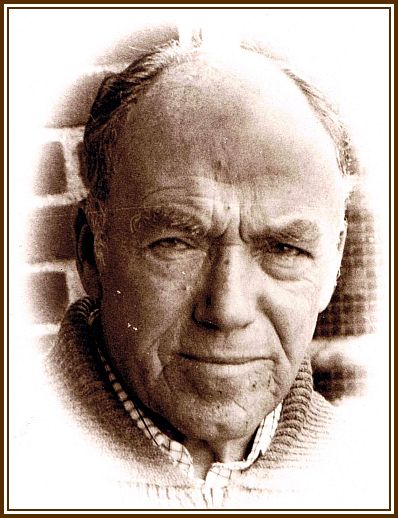 My Father ……. Jack-of-all-Trades, Master-of-None ……. an enigma
My Father ……. Jack-of-all-Trades, Master-of-None ……. an enigma
-oOo-
TALE NINE: HOW TO MAKE
A SICK KID LAUGH
To be honest, my father was rarely able and even less willing to take control of a difficult situation. However, to be equally as honest, he was good in one particular direction whenever I was ill as a child. Sadly for me, my childhood years were plagued with my suffering from multiple ear infections, but one great consolation from being ill was that it inspired my father to relate tales of his childhood, which I hasten to add, I believed every word!
-oOo-
Middle ear infections (Otitis media)were not uncommon to me in those days. Treatment at that time was not with a sweet-flavoured liquid containing an Antibiotic, as it is today, but required its Intra-Muscular Injection with the most common site for assault being one of the buttocks! Such treatment was not without great pain! If infections occurred on a regular basis, the doctor would next advise the surgical removal of the Tonsils and Adenoids, which required a hospital stay and the use of a General Anesthetic. In order to undergo surgery one had to be well and not suffering from any kind of infection. It seemed that whenever I went for surgical evaluation, it was discovered that I had a low-grade fever and so was dismissed as a candidate for such treatment and sent home whereupon I invariably developed yet another ear infection. My parents suffered this vicious circle with me for a number of years.
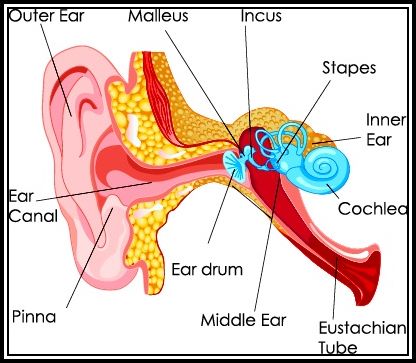 Anatomy of The Middle Ear
Anatomy of The Middle Ear
-oOo-
On one occasion while enjoying a day-trip to the seaside and sitting on the upper deck of a roofless bus, I remember, as we made our way along the promenade, being suddenly struck with severe pain in my left ear. By the time I arrived back home in Bethnal Green, I was suffering from an extremely painful bout of middle-ear infection. My parents treated me as previously instructed by our doctor and were planning to take me to his surgery the next morning. Apparently during the night, my condition worsened and my parents became most distressed. Their distress continued to such a point that they rushed me to the Queen Elizabeth Children’s Hospital on Hackney Road, a place I knew well from visits to receive injections into the bottom!
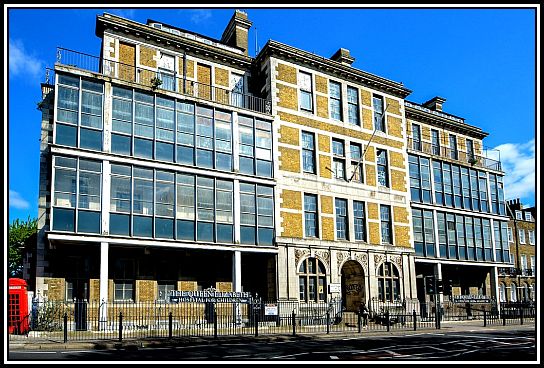 Queen Elizabeth Children’s Hospital
Queen Elizabeth Children’s Hospital
As it happens, it was most fortunate for me that my parents had rushed me to the hospital since it was found that the infection had spread and was following branches of the Cranial Nerve VII and the Stylomastoid Artery, as they passed through the Stylomastoid Foramen or Canal, which passes between the Styloid and Mastoid Processes of the Temporal Bone of the skull, and makes its way up into the Cranial Cavity where the brain sits. Such an infection was and still is considered serious since its repercussions can be dramatic.
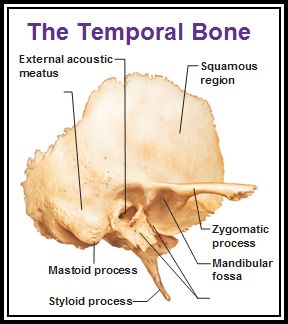 The Temporal Bone
The Temporal Bone
Very quickly, after consultation between the hospital staff, a decision was made, which found me being rushed into an empty Theatre, as Operating Rooms were once called. Upon arrival under the very bright and hot lights, I was speedily prepared for what was to be emergency surgery. There in the centre of the Theatre, I was poked and prodded and made ready for the grand entrance of the hero of the plot, a very tired looking surgeon who most likely had been summoned from his Call Room where was probably enjoying a well-deserved snooze. I remember a nurse holding my upper body in a vice-like grip as a face-mask was forced over my nose and mouth and then nothing more until I awoke in one of the Children’s Ward on the first floor that looked out over Hackney Road.
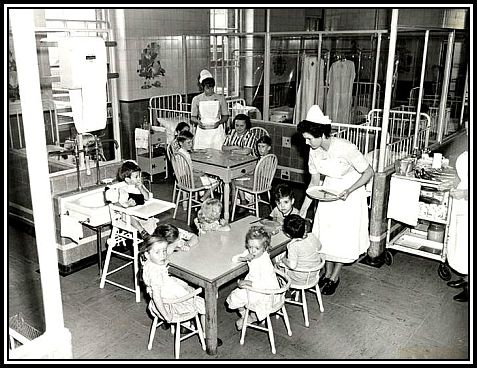
I later learned that the infection had been drained. Had this not been done at that time, I might not be in a state to relate this tale.
-oOo-
But I digress! Whenever I was struck down with a cold or a simple ear infection, once the affliction was verified by my mother, I was quickly sent to bed or else allowed to lie on the couch with suitable covers over me and several pillows under my head. Was royally better taken care of, I wonder? However, on those occasions when I was not ill, but wanted to stay at home and not go to school, my mother was never fooled. Whenever I tried to look pitiful and said that I thought I might be ill, my pretense was always dismissed by her and I was urged, in the strongest terms, to get to school and work it off! At such times she assumed the demeanor of a monitor or that of a drill sergeant! (Just joking!)
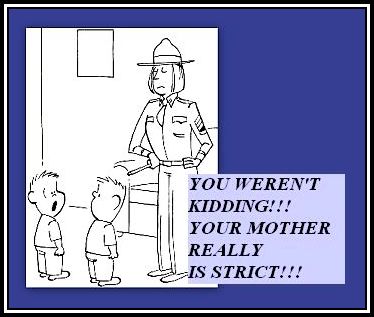
However, by contrast, my father was a push over! He could be wrapped around my little finger. All I had to do was to complain to him that I had a slight sniffle and he would tell me that I had better stay home! When my mother found out that he had allowed me to school, she was furious with us both, but it was too late for her to insist I get up and work it off! However, this did not stop her, whenever possible, to insist that I went to school in the afternoon with a note written by my father.
And so whenever I was really ill, I only wanted my father to attend to my needs. Although my mother had concern – perhaps more concern – she was relegated to the status of a maid and was there to bring suitable delicacies to my beside which were enjoyed by my father and me as he provided the entertainment.
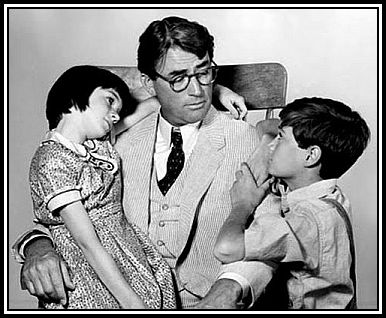 Atticus Finch – perhaps the Perfect Father Figure
Atticus Finch – perhaps the Perfect Father Figure
-oOo-
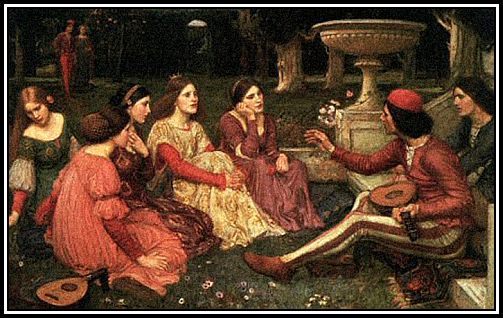 A Tale from The Decameron painted by John William Waterhouse (1849-1917)
A Tale from The Decameron painted by John William Waterhouse (1849-1917)
(The Decameron was written by Giovanni Boccaccio (1313-1375))
This brings me to one of my father’s greatest qualities ……. his ability to tell wondrous tales: tales that could transport both my mother and me far away into the land he described and often send us into fits of laughter. I smile when I think of some of his tales now.
 Joel Chandler Harris (1848–1908), creator of Uncle Remus and Br’er Rabbit & Friends
Joel Chandler Harris (1848–1908), creator of Uncle Remus and Br’er Rabbit & Friends
Although I can see that his stories were neither sophisticated nor particularly clever, their charm lay in the telling and, to a sick child, my father’s tales were wonderful and memorable, and just what the doctor ordered! One of his best loved tales involved his hiring of a bicycle when he was supposed to be at school.
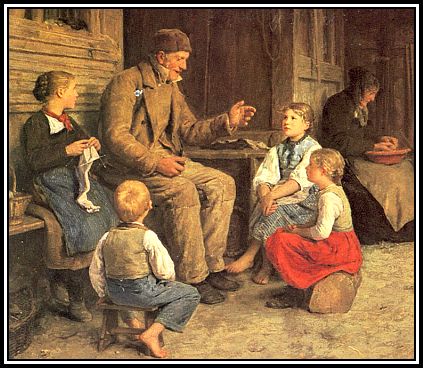 The Old Storyteller
The Old Storyteller
-oOo-
My father admitted freely that he did not like school. He said that he was unable to learn and left without being able to read well. Apparently he preferred to gaze out of the window and daydream rather than listen to the teacher. He said that he would sit in class and when asked to answer a question, oftentimes he had no recollection of what the teacher had been speaking about. He said that he later taught himself to read. I remember him reading both books and newspapers so evidently he taught himself well.
-oOo-

Years later, I came to the conclusion that my father perhaps suffered from Attention Deficit Disorder (ADD). Today, this disorder is readily, and perhaps, overly diagnosed in young children who appear to be inattentive and/or disruptive in school. No one seems to consider that perhaps these poor children might simply be bored!

Since 1987, the disorder has been subdivided officially into ADD and Attention Deficit Hyperactivity Disorder (ADHD).

ADHA includes the expression of hyperactivity or excessive restlessness in those afflicted with the condition. This symptom is absent in ADD. Those with ADD are generally calm and serene and tend not to be hyperactive and/or disruptive.
Today ADHD is now said to have three basic forms: predominantly inattentive; predominantly hyperactive-impulsive; and combined, as described in the Diagnostic and Statistical Manual of Mental Disorders, Fifth Edition (DSM-5) of the American Psychiatric Association.

-oOo-
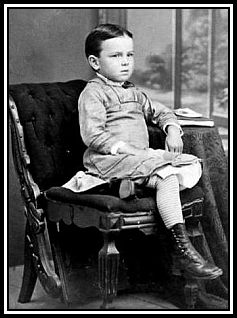 Sadly, I have no photographs of my father as a boy.
Sadly, I have no photographs of my father as a boy.
However he might have looked rather like this boy.
He told me that he too wore high-buttoned boots as a schoolboy.
My father was born in Dulwich, but was raised in a house on Albany Road in Camberwell. My mother said that he was a difficult child, which I can certainly believe, but I am unable to account how she knew this.
“Camberwell Green” or No. 6 Allegretto grazioso in A major by Felix Mendelssohn (1809-1847); composed while Mendelssohn was staying with friends in Camberwell
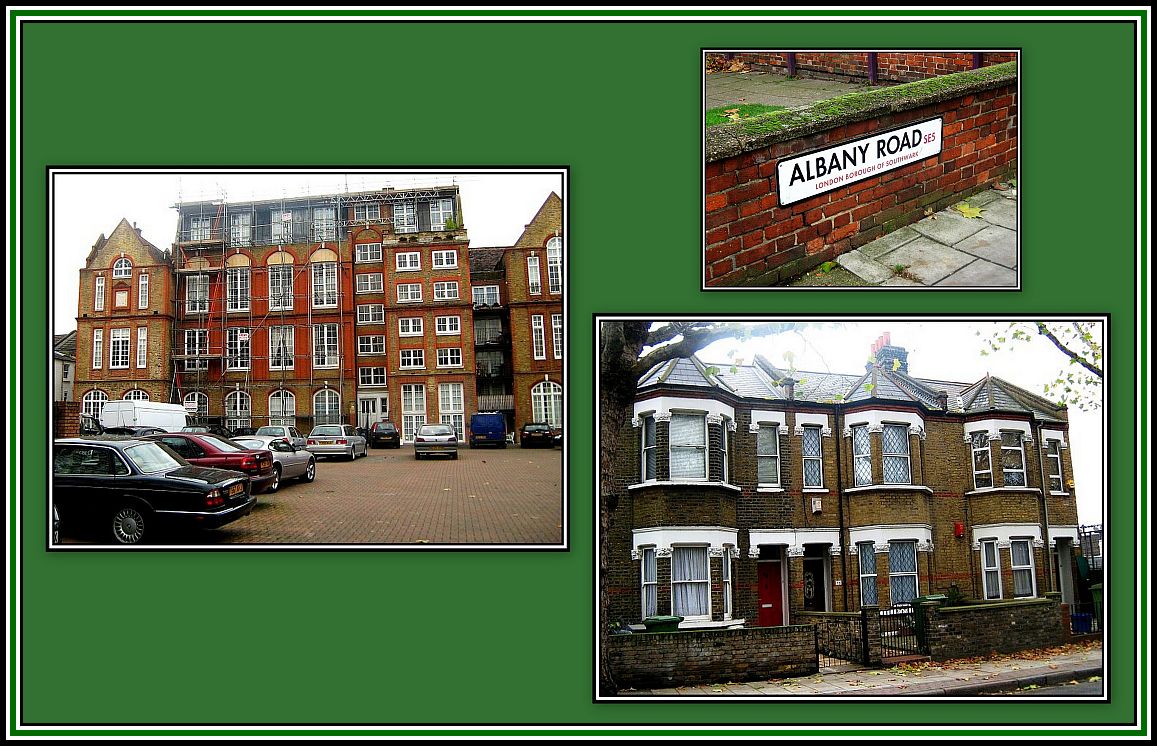 Albany Road runs between Camberwell Road and the Old Kent Road
Albany Road runs between Camberwell Road and the Old Kent Road
Left: Michael Faraday Elementary School on Albany Road – perhaps the school my father attended
Right: houses on Albany Road – my father lived in such a house
-oOo-
My father used to disappear from school on occasion. He was often sent to the headmaster as a result of his inability to pay attention in class. On the way to the headmaster’s study, he said that he often simply walked out the gate and took off for a day without a word to anyone in authority and then went off wherever he chose. He liked to follow tram routes often simply to see where they went! He also went to the park and played football with like-minded children or else occasionally found a tradesman who needed errands ran and received a few coppers for his trouble. With his earnings he liked to hire a bicycle, which he rode to further points that interested him.
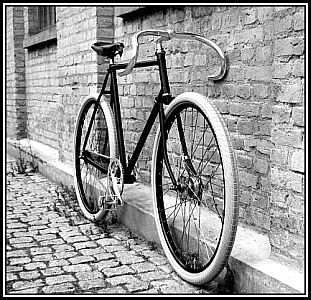
-oOo-
My father’s hiring of a bicycle leads me (eventually!) to perhaps my favourite tale of his that he told my mother and me often on those occasions whenever I was ill and tucked up snugly in bed.
My father said that he used to hire a bicycle for a couple of hours, when he had the money, from an old man who kept a small shop in a side street off Camberwell Green. He said that the old man was very short and hunched over and always seemed to have a cold and was constantly sniffing. My father said that the old man was always miserable and very grumpy and always moaned as he reminded him to bring the bike back on time if he did not want to be charged an extra hour. The old man also reminded my father to be careful as the roads were dangerous and accidents were commonplace!
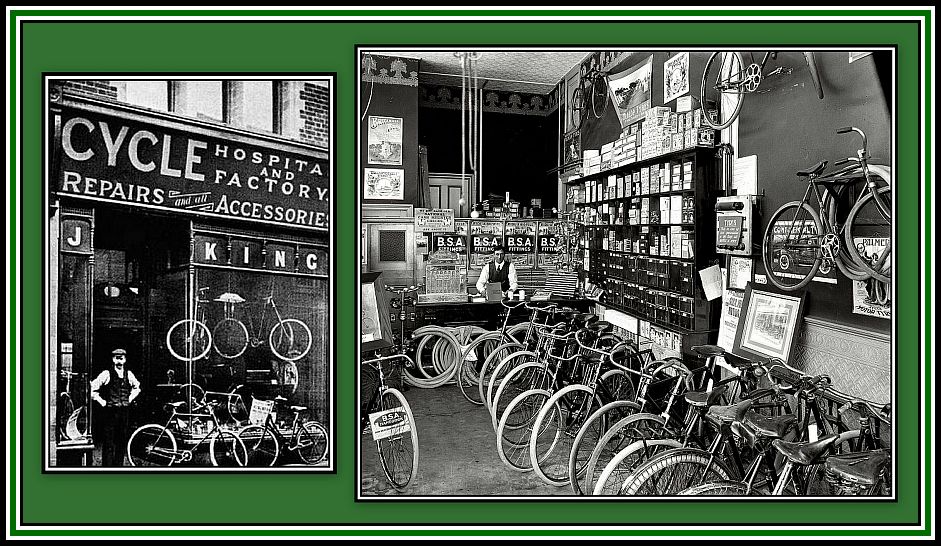
My father smiled whenever he related this part of the tale and then never failed to remind me to be certain to be careful whenever I crossed a road. I am still amused by his concern for my welfare at this time since I was still of an age when I wasn’t allowed to cross a major road without the aid of an adult!
-oOo-
Throughout my whole life, regardless of my age, my father would tell me not-to-be-late-home whenever I went out during an evening and claim that he would only be happy once I got home safe and sound. The reader might get the impression that my father was very caring and concerned about my safety. However, I did not appreciate his claim, as I never believed that it had depth, for whenever he disappeared for a week or so with his wages, leaving both my mother and me without money, he did not seem to show any concern for our welfare! But I digress once more! (Although one may forgive, some wounds take much time to heal completely.)
-oOo-
My father said that he enjoyed riding his rented bicycle all over his neighbourhood and around other parts of South London. Apparently these bicycles had a small basket attached to the handlebars where he put a bottle of water and some bread to sustain him on his journey. He said that during one of these jolly jaunts, he had once ridden all the way to Abbey Wood and back and told us of the ruins that he found there (Lesnes Abbey, The Abbey of St Mary and St Thomas the Martyr at Lesnes) . On another occasion, he rode as far as Richmond where he discovered a Palace and had his lunch by the side of the river.
Yves Montand (1921-1991) – La Bicyclette
Of course on these occasions, he had to pay for extra hours of bicycle use and suffer the old man’s complaints.
-oOo-
Lesnes Abbey was founded by Richard de Luci (1089-1179), Chief Justiciar of England (1154-1179), In 1178, perhaps as a penance for his part in the murder of Thomas Becket (1119-1170). de Luci resigned his office in 1179 and retired to the Abbey where he died shortly after. The heart of his great great grand-daughter, Roesia of Dover (who died 1261) is also buried here at her request since she held the place in great affection. The Abbey was closed in 1525 by Cardinal Wolsey (1473-1530).
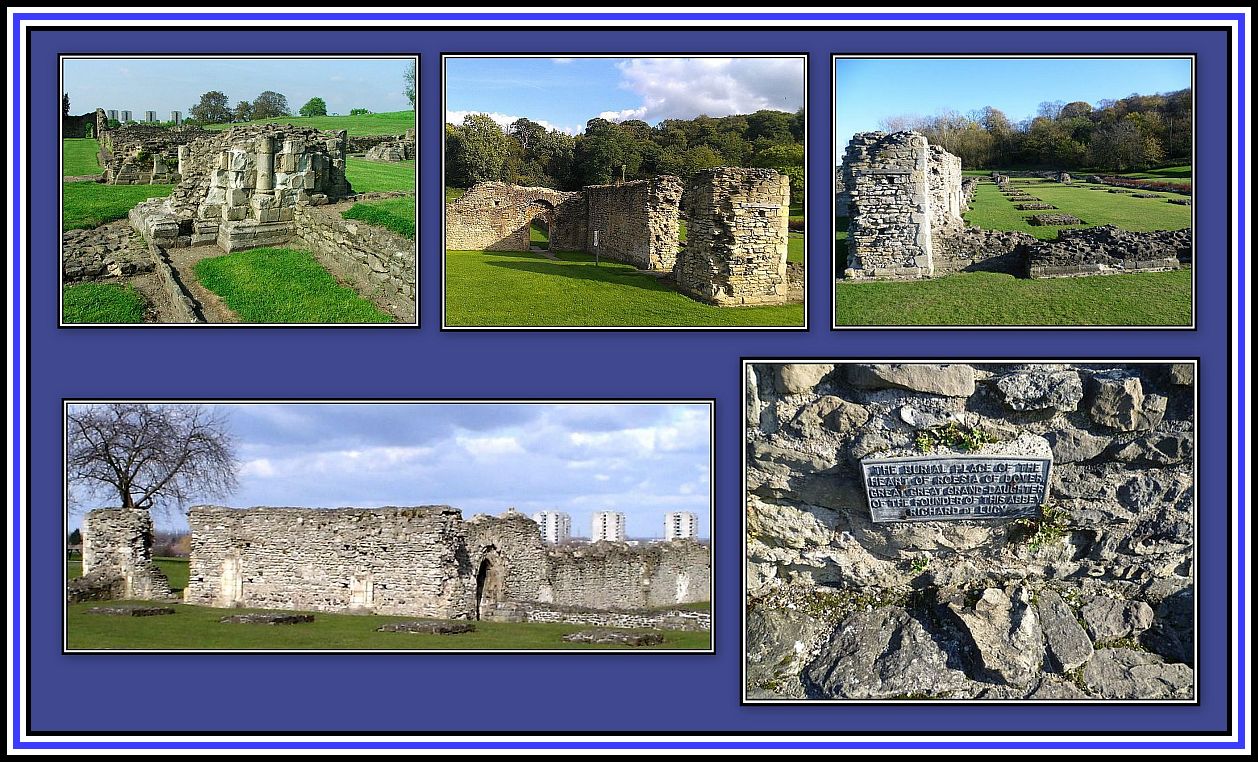 The Ruins of Lesnes Abbey
The Ruins of Lesnes Abbey
-oOo-
Work began on the building of The Manor House of Sheen around 1125. In 1299, Edward I (1239-1307) moved his court here and Edward III (1312-1377) extended it and turned it into Sheen Palace. In 1383, Richard II (1367-1400) became the first English King to make it his main residence, but following the death of his wife, The Palace fell into disrepair. Henry V (1386-1422) began renovation in 1414 and Henry VI (1421-1471) continued the work. However in December 1497, most of the wooden buildings were destroyed. Henry VII (1457-1509) began construction of a new Palace in 1498 and named it Richmond Palace since he held the title of Earl of Richmond. Elizabeth I (1533-1603) spent much time here and it became her residence of choice and also enjoyed hunting in Richmond Park (Old Dear Park). The Palace remained an important centre of court until that of James I (1566-1625). In 1649, the estate was requisitioned by Parliament and demolished as a result of the English Civil Wars (1642-1651). However, parts of the building (the Wardrobe, Trumpeters’ House and the Gate House) still remain along the bank of the River Thames and have been granted Grade I listing. The Palace was never rebuilt.
-oOo-
As I said before, my father liked to follow bus and tram routes simply to see where they led him. I think that he must have hoped that at the end of a route he would find a magical land to explore. This is exactly what I thought awaited me when, as a child, I began to wonder what lay at the end of very long roads and the numerous bus and trolleybus routes.
But, again I digress! I remember of one particular trip that my father made on his hired bicycle that greatly amused my mother and me especially and which involved his riding up Denmark Hill.
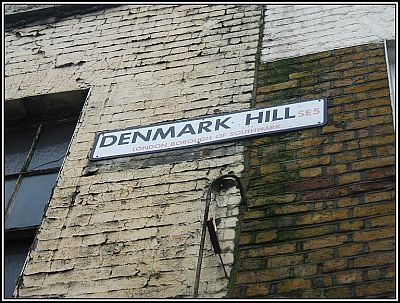
-oOo-
Denmark Hill is an area of South London and a the name of a long road running through the centre of the area. The road begins at Camberwell Green in the north and continues south and later it becomes Herne Hill. Today the area is of interest for the presence of King’s College Hospital, Ruskin Park and the William Booth Memorial Training College (foundation stone lain in 1928).
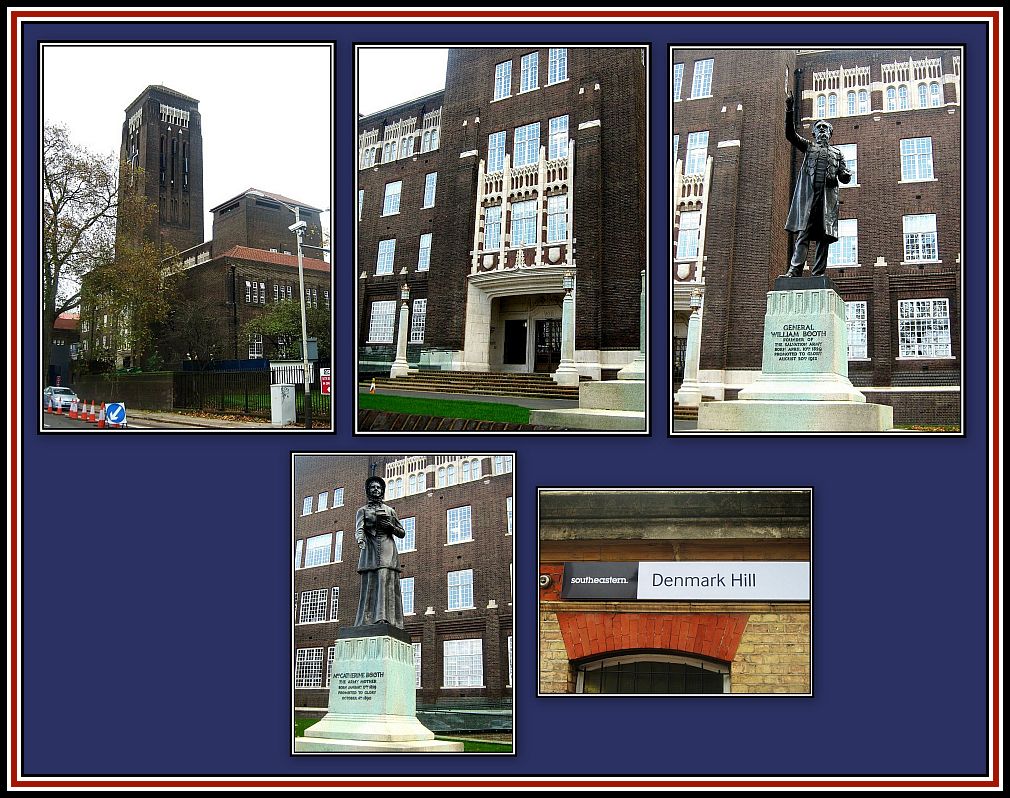 Willam Booth Memorial Training College
Willam Booth Memorial Training College
Top Right: Statue of General Booth; Bottom Left, Statue of Mrs. Catherine Booth
Bottom Right: Station Sign
-oOo-
Not too far from Camberwell Green at the corner of Denmark Hill and Coldharbour Lane (A 2217) once stood the Metropole Theatre. The Theatre was designed by Bertie Crewe and W. G. R. Sprague and opened in 1894 and was used to present both plays and opera.
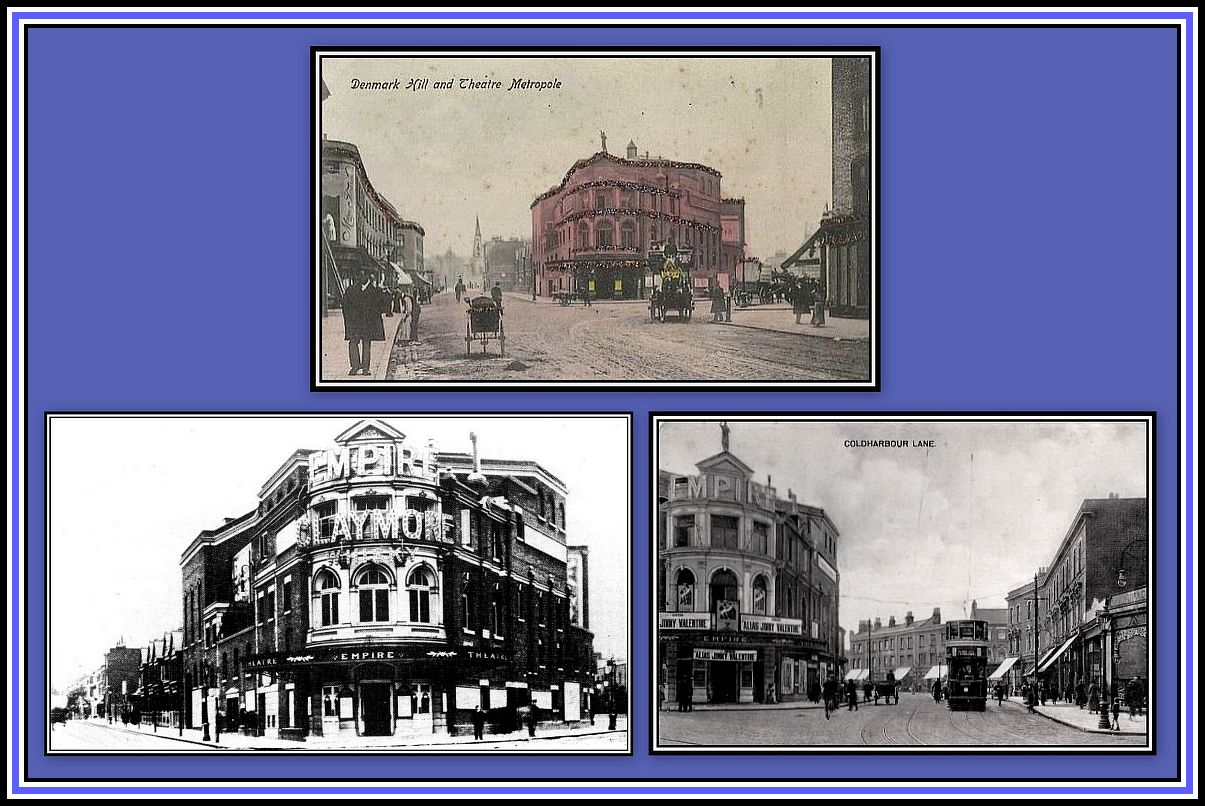 Top: Metropole Theatre; Bottom: Camberwell Empire
Top: Metropole Theatre; Bottom: Camberwell Empire
Awaiting permission from the Loughborough Junction Website to reproduce these postcards
In 1906, the Theatre was renamed the Camberwell Empire, and in 1912, was showing moving pictures as part of the Variety Shows now being presented. In 1918, the Theatre became the Camberwell Theatre & Picture House and was being used for both the showing of film and live entertainment. In 1924, the Theatre was now presenting only films and now known as the Camberwell Empire & Picture House. The Theatre was equipped for sound in 1930, but was still used for the occasional stage presentation.
In 1937, the building was sold to Oscar Deutsch (1893-1941) in 1937 who demolished it and then built an Odeon Theatre on the site.
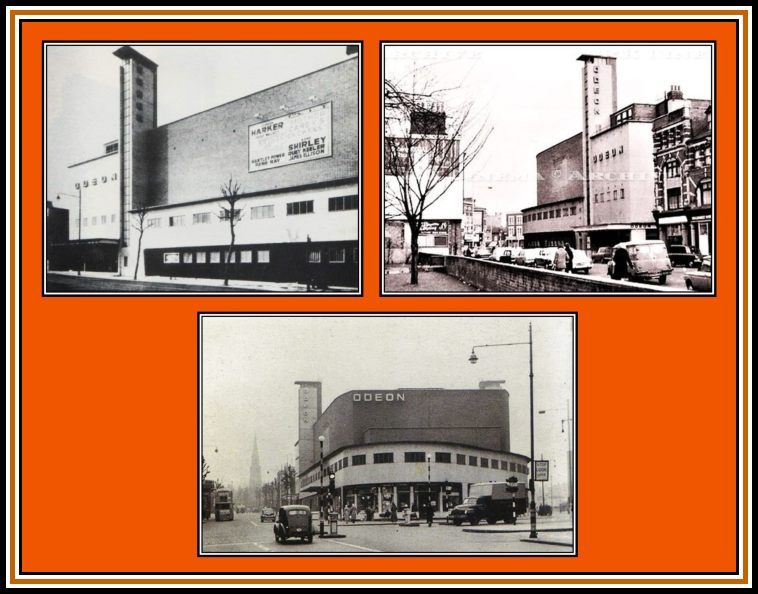 Odeon Theatre Camberwell – the fourth largest Odeon in the Circuit
Odeon Theatre Camberwell – the fourth largest Odeon in the Circuit
The Odeon Theatre Camberwell opened in 1939 and was in use until 1975 when it closed. In 1981, the building was converted into Dickie Darts, a store, which was only in business for about two years. After standing empty for some years, the building was demolished in 1993 and a block of flats for homeless young people, known as The Foyer, was built on the site.
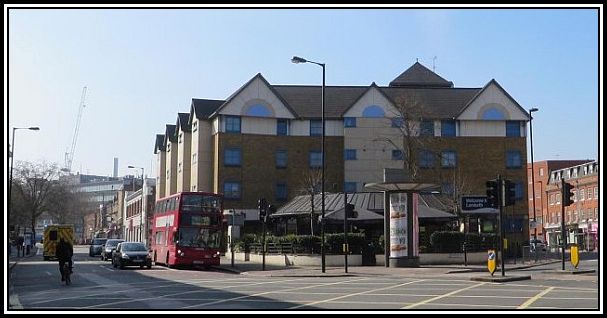 The Foyer, Denmark Hill
The Foyer, Denmark Hill
-oOo-
My father said that he liked to ride his bicycle up Denmark Hill and go to Rushkin Park. Here he played football with some of the kids of the area who were avoiding school or else he rode around the park until it was time to return the bicycle. During his ride along Denmark Hill, he would have most likely have passed the Camberwell Theatre & Picture House, however he told that he rode by the Odeon Theatre, which of course, had not been built at this time!
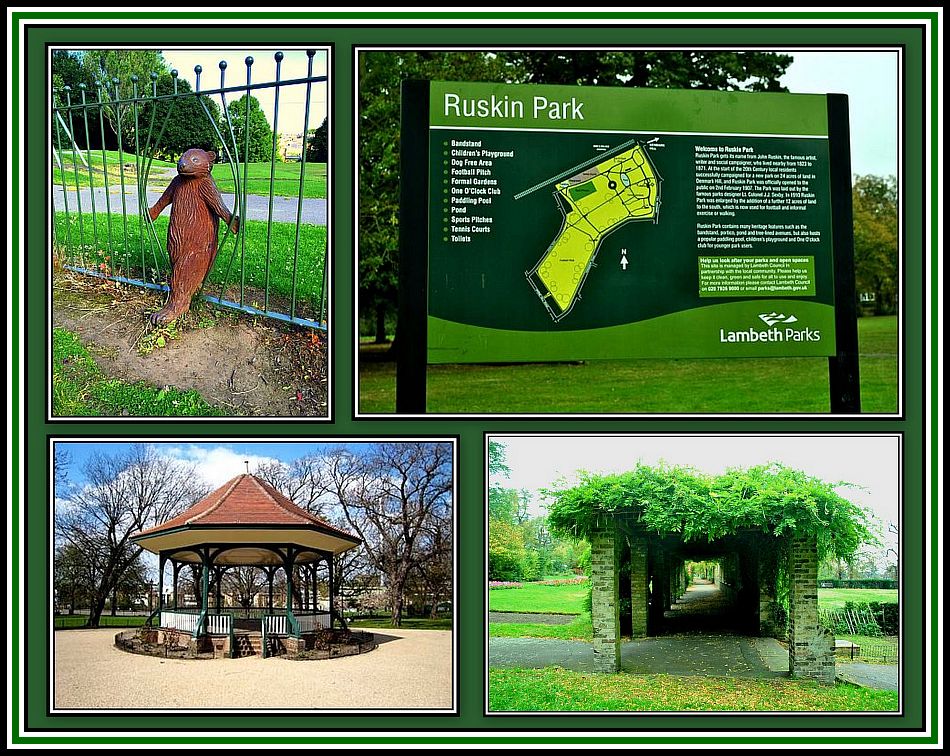 Rushkin Park showing (clockwise from Top Left):
Rushkin Park showing (clockwise from Top Left):
The Bear breaking through the railings (!), a map of the points of interest,
the Bandstand and the Pergola
I remember that he said that it was often difficult riding up Denmark Hill due to its length and also to not having gears on the bicycle. Looking at The Hill today, one can understand the difficulty of tackling the ride without bicycle gears!.
-oOo-

My father said that one day when he was on Denmark Hill, one side of the road had been dug up for repairs. As he was passing the huge hole in the ground, a car came rumbling past him at high speed causing him to wobble a little and then fall into the hole with the bicycle falling on top of him.
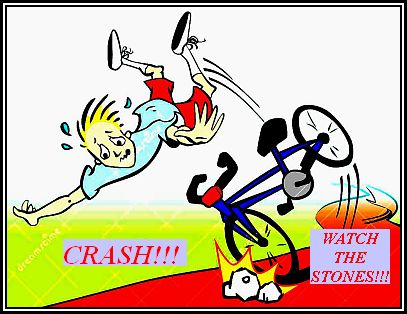
Fortunately for him, the hole was not deep and he only sustained some grazes to his knees, but it seemed that one of the inner tubes of the wheels had begun to increase in size! He said that the inner tube size increased fast and was quickly taking up the whole of the hole! My father quickly forgot about the bicycle and his scrapped knees and clambered out of the hole and began to run off.
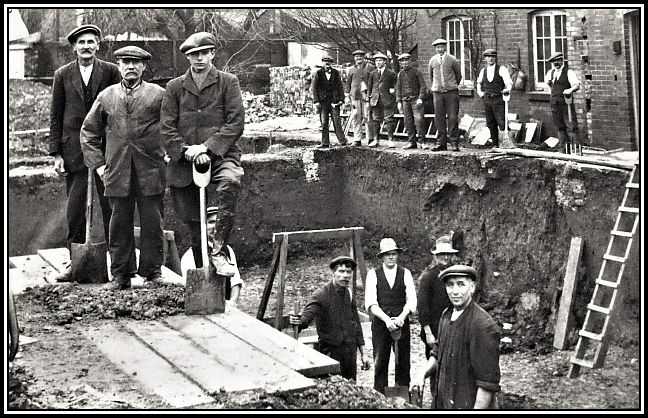
I remember asking him where the workmen who had dug the hole were. He said that most likely they had all left for a cup-of-tea and weren’t in sight! The hole, as he said, had been dug in front of the Odeon Theatre, although as I said earlier, it was the Camberwell Theatre & Picture House that was present on Denmark Hill at this time! Anyway, since it was his story, I suppose he had to right to make the setting as he chose!
-oOo-
By now, the inner tube of the bicycle’s front wheel had grown to such a size that it had filled the hole and was now overflowing it and forming a huge balloon-like structure above it!!! My father said that he was a good way from the hole before he dared turn back to look. As he turned, he saw the balloon quiver and then remain still for a second or two before exploding with an enormous bang! He said that the explosion most probably could be heard at Camberwell Green! According to him, the force generated by the explosion caused the doors of the Theatre to fly open thereby creating total chaos.
My father said that there were a number of women coming out of the Theatre at the time who had been attending a matinee. Since it had now started to rain, those with umbrellas were trying to open them. He said that the force generated by the explosion caused those women with open umbrellas to be propelled into the air and to be sent flying along Denmark Hill!
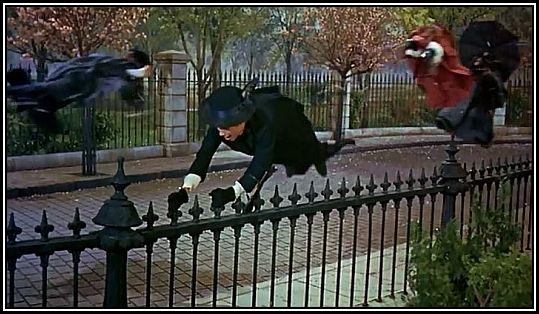
My father always laughed heartily when he got to this stage in his story telling. He said that the scene was one of total pandemonium. Although discretion is said to be the better part of valour, my father decided that, in this case, it was retreat! And so he decided that it would be best for him to take off poste haste and hotfoot it home as quickly as humanly possible and not to look back!
As he raced along Denmark Hill to Camberwell Green, he was passed by a number of fire engines, ambulances and police cars, each ringing their bells!!! He said that he did not stop running until he arrived home just in time for his tea!
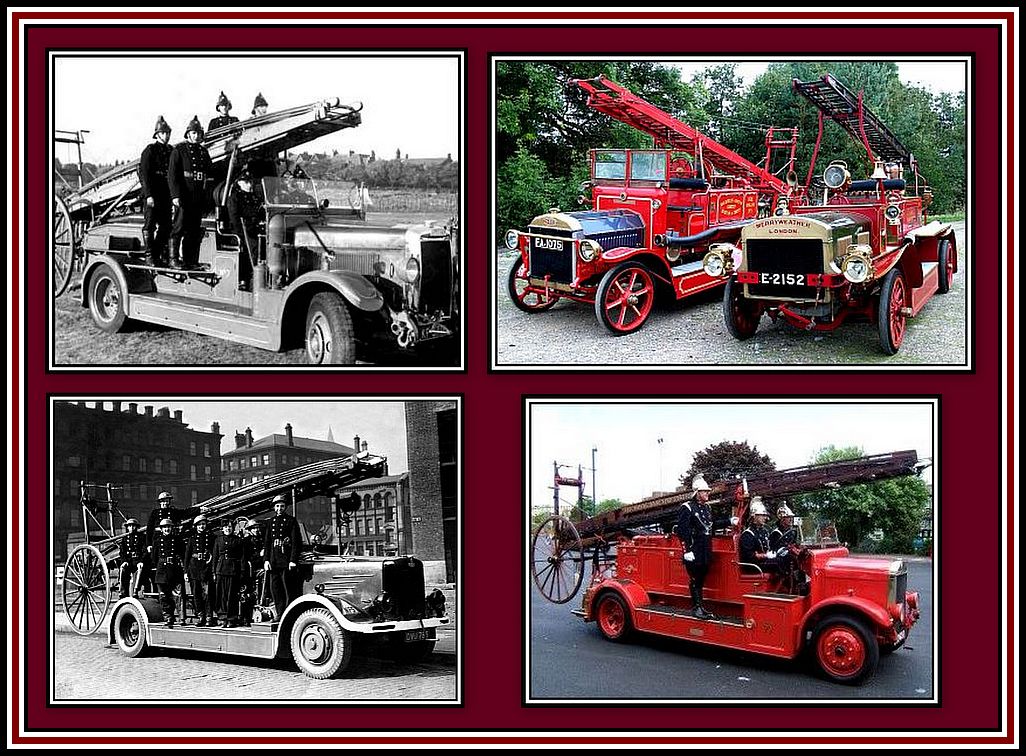
-oOo-
I asked what happened to his bicycle. He said that he had no idea. He did say that he believed that it had been blown to pieces during the explosion! He also said that he never dared return to the hire shop as he knew that the old man would be furious with him and chastise him over the bicycle’s destruction and force him to pay for it.

My father wisely kept a very low profile for ages after since he thought that the police would be looking for him. Wisely, he did not tell his mother or father about the incident.
-oOo-
I used to almost choke with laughter each time he told this tale, which was often since it quickly became a great favourite of mine. It was, after all, the kind of tale that would appeal to a small child, especially to one who was not feeling well. Adding to its appeal, and causing me to laugh until I ached, was the fact that my father acted out parts of the story with great gusto during its telling.
I have to confess that at my young age I believed every word of this story and was very upset when I realised that most of the tale had been a figment of his over-active imagination! Of course he never ever once admitted to this.
-oOo-
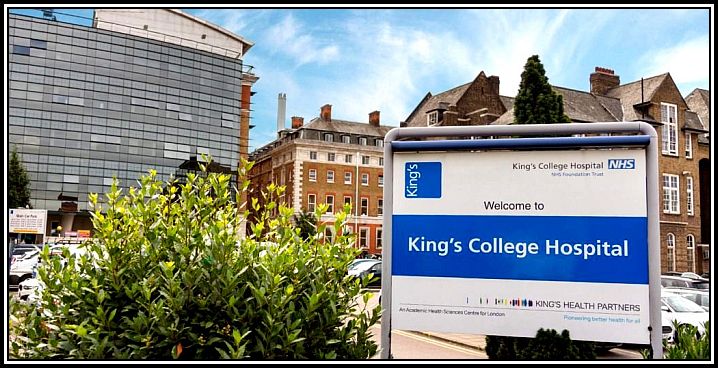
Some years later I had to go to King’s College Hospital for an interview and I recall sitting on the upper deck of a London bus traveling along Denmark Hill. I remember that I was looking out of the window when suddenly before my eyes was the now-derelict Odeon Theatre!
Suddenly, my father’s story rushing back into my mind, and equally as suddenly, I burst out laughing! For a few moments I could not move for laughing. Evidently aware of my setting, I tried to turn my laughter into a bout of coughing, but alas, to no avail. I suspect my fellow travelers thought me demented, but I was unable to control my laughter! I remember eventually gaining some control of my legs and getting up from my seat and, not bothering to hide my face, stumbling and falling my way to the stairs to the lower deck. I am amazed that I did not tumble down the stairs and land in a heap at the feet of the conductor! Once I arrived on the platform, I practically fell off the bus, still laughing uncontrollably!
Somehow I managed to get to the interview, but I have to admit that I coughed a great deal in order to hide further bouts of laughter when I felt them coming. Needless to say, I was not offered a position!
-oOo-
Years later after my father had died, my mother and I often recalled some of his stories. Our memories caused us to laugh heartily once more. I remember that we enjoyed the tale of the bicycle in the hole and the supposed huge explosion that blew open the doors of the Theatre and sent women flying through the air and along Denmark Hill.
Although my father had a number of such tales to tell a sick kid and it was this one that I liked the best and could never hear it too often. For all of his failings, my father certainly had a great imagination and told wonderful stories!
-oOo-

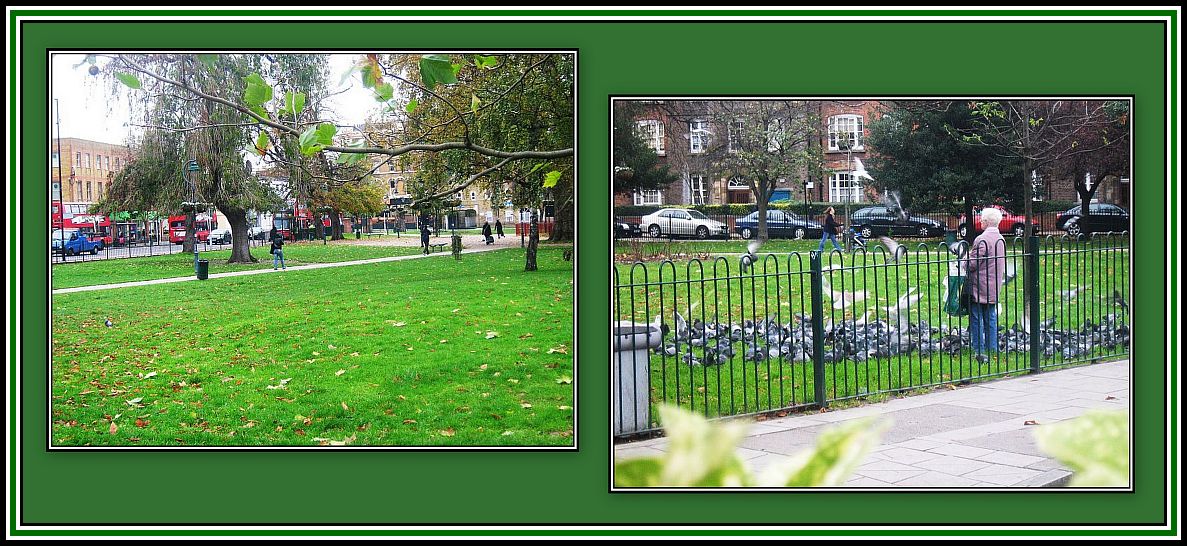
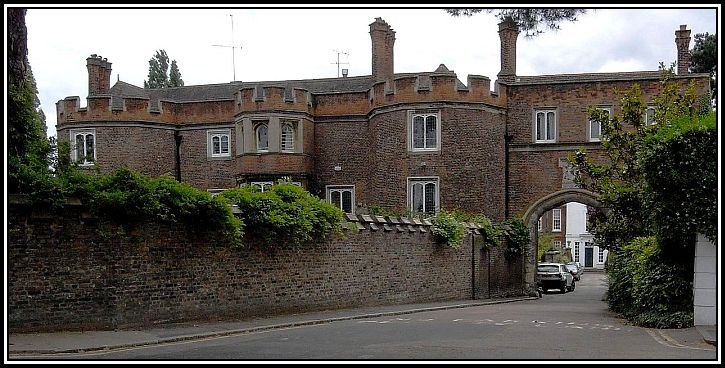 The Gate House of Richmond Palace
The Gate House of Richmond Palace